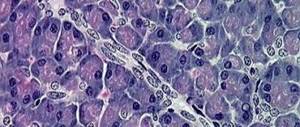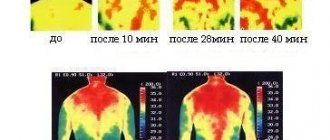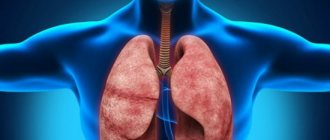People sick with rotavirus usually have many questions related to the course of the disease. For example, what is rotavirus infection, symptoms and treatment, how it proceeds, how long it lasts. Interested in the incubation period, how not to infect your family, diet during illness and after recovery, disease prevention. I will try to answer all questions in this article. Since the symptoms of rotavirus and therapy in adults differ from the course of the disease in children, today we are talking about the disease in the older generation.
What is rotavirus infection
Other names for this serious disease are rotavirus, rotavirus gastroenteritis, and intestinal flu. Affects adults and children. Interestingly, the disease is often seasonal, with outbreaks more often recorded in spring and summer.
The causative agent of the disease is the PHK-rotavirus microorganism, which is highly resistant to low temperatures, remains viable when treated with chlorine, ethers, formaldehyde, and is not afraid of ultrasound. Bacteria lose activity when exposed to alkali, acidic environment and prolonged boiling.
In the external environment, bacteria can remain viable for up to several months. Once in the gastrointestinal tract of an adult, viral agents begin to actively multiply in the stomach and mucous membranes of the small intestine. As a result, it becomes inflamed and the first symptoms of the disease appear.
How many days does the disease last?
With timely consultation with a doctor and proper treatment, the duration of the acute period of the disease is 3-7 days, followed by a recovery period lasting 4-5 days.
Rotavirus infection - symptoms and treatment in adults
And again, answers to exciting questions about the onset of the disease, the appearance of the first symptoms, and subsequent treatment and prevention.
How many days does it take for the infection to appear?
The incubation period of the disease is quite short, ranging from 12-15 hours to a week. But usually it is 1-2 days. During this period, a person feels weakness, heartburn, slight nausea, and mild pain in the intestines. Sometimes the temperature rises slightly, a slight runny nose and sore throat appear, which is extremely rare, unlike the childhood manifestation of the disease. Therefore, the onset of rotavirus disease is often confused with a common ARVI.
After the incubation period, the disease manifests itself in an acute form, sharply, with characteristic symptoms.
How many days is a rotavirus patient contagious?
Having fallen ill, a person becomes a carrier of the virus at the first symptoms of the disease. With proper and timely treatment, the infectious period lasts 2-7 days, until the sign of infection completely disappears.
How is rotavirus transmitted?
Animal rotaviruses do not pose a danger to humans; you can only catch the infection from other people. Many patients ask whether the virus is transmitted through airborne droplets. There are several ways to become infected with the virus:
- Through household objects - contact. These include transmission through shared personal hygiene items, in families where people are not accustomed to frequently washing their hands and observing other sanitary standards.
- With food – nutritional. A person becomes infected through food and drinking water. Prevention in this case is heat treatment of foods, washing vegetables and fruits, and boiling water.
- Airborne. Close contact with a sick person leads to the fact that infection occurs when a person sick with rotavirus sneezes and coughs.
Is it possible to become infected again?
Unfortunately, immunity after rotavirus infection does not last long. The transferred disease will not protect against re-infection later.
Symptoms of rotavirus infection
The disease manifests itself in the form of isolated cases or epidemics, which occur more often in autumn and winter.
Those infected with the stomach flu complain of fever, nausea, vomiting, headaches, and lethargy. The disease is also characterized by respiratory symptoms such as a sore and red throat, cough and runny nose.
Due to a lack of enzymes responsible for the breakdown of sugars, osmotic-type diarrhea syndrome develops. Frequent urges occur unexpectedly, in severe cases - more than twice a day.
With rotavirus enteritis, in addition to intestinal disorders, the following are possible:
- Fever, which occurs in 10% of adults.
- Gray-yellow liquid foamy feces without impurities.
- The presence of blood or mucus in the stool.
- Cramping pain in the upper abdomen, accompanied by loud rumbling.
Rotavirus intestinal infection occurs without symptoms in the first 1–5 days after a person is infected. Then the inflammatory process in the intestinal wall leads to poisoning of the entire body and its accompanying symptoms. After treatment, the mucous membrane is restored only after 1.5-2 months.
Rotavirus infection - symptoms in adults
Symptoms of intestinal flu in adults are somewhat less pronounced than in children. But it is better diagnosed, since in children the onset of rotavirus gastroenteritis is often confused with ARVI. Although in adults, the infection is often mistaken for simple food poisoning, since they have similar symptoms, read about them in another article.
There is no need to explain the importance of quickly recognizing the first signs of the disease; the main task is to begin treatment of the viral infection as soon as possible in order to avoid complications. Does rotavirus occur without diarrhea and vomiting? Know the signs of a virus infection.
Main symptoms:
- Severe vomiting.
- Non-stop diarrhea, frequent and severe. The color of the stool is cloudy yellow, with a sour odor, foaming.
- Pain and rumbling in the stomach.
- A noticeable decrease in appetite, even to the point of refusing food.
- Severe weakness, constant dry mouth.
- Signs of ARVI appear - runny nose.
- High temperature, dizziness.
- Redness of the eyes.
- There is a pronounced milky coating on the tongue.
- Reducing the frequency of urination.
- Enlarged lymph nodes.
- A urine test reveals elevated levels of protein, white blood cells, and red blood cells.
How to treat rotavirus infection in a child
It is necessary to approach the disease especially carefully if a small child is sick. First of all, you need to give him as much to drink as possible. This will prevent dehydration. The drug "Regidron" has a good effect. It makes it possible to balance citrates, potassium and sodium. With the help of Regidron, you can restore the gastrointestinal tract. The drug should be diluted and administered in accordance with the doctor’s recommendations.
Food is given in small portions. During this period, liquid food should predominate in the diet. You should give up dairy. You need to prepare broths and meat products. Natural juices are beneficial for the body. After eliminating the main symptoms, doctors prescribe enzyme preparations, for example, Festal. The medicine is used on the recommendation of a pediatrician.
The main symptom of rotavirus infection in adults is diarrhea. You shouldn't take it lightly. The consequences of “ordinary” diarrhea can have catastrophic consequences for the body. A good remedy for diarrhea is Smecta; it can be replaced with Enterol. To restore water balance in the body, you need to drink as much water or juice as possible.
Treatment of rotavirus infection in adults
Having recognized the symptoms of rotavirus and consulted a doctor, it is important to follow all recommendations for treating the disease in order to avoid complications. Your doctor will tell you how to treat intestinal flu at home. Common recommendations include bed rest, avoiding contact with loved ones, drinking plenty of fluids and eating the right diet.
There are no specific drugs for the treatment and suppression of rotavirus itself. Treatment is aimed at eliminating symptoms - diarrhea and vomiting.
Medications
Frequently asked question: can I take antibiotics? No, they are usually not appointed, they have a different area of activity. Doctors prescribe medications that can replenish fluid and stop intoxication of the body.
- Spasms in the intestines are relieved with ordinary No-shpa.
- Reduce the temperature no earlier than the readings reach 38 degrees, let the body cope with the virus on its own, since most die at high temperatures. If the need arises, knock it down by taking Paracetamol, Nurofen, Coldrex, Rinza.
- To alleviate the state of intoxication, it is recommended to use sorbents that absorb and remove toxins from the body. These are activated carbon tablets, Polysorb, Smecta, Enterosgel, Liferan.
- If there is a large loss of fluid, the drug Regidron is prescribed, which retains fluid in the body. In its absence, make a simple saline solution at home.
Rotavirus infection during pregnancy
The symptoms of intestinal flu in pregnant women are the same as in other adults. Doctors say that this disease is not dangerous for the fetus.
When treating a pregnant woman, the main task is to prevent dehydration. Lack of fluid leads to the threat of miscarriage and premature birth, as it causes oxygen starvation in the fetus. Hence the doctor's recommendation - drink plenty of fluids.
What can you drink? Large quantities of fruit drink, still water, and compote are allowed.
Medicines prescribed include Polysorb, Smecta, and activated carbon tablets. It is allowed to bring down the high temperature. After the end of the acute period, it is recommended to restore the intestinal microflora with Lactobacillus preparations.
Restoration of microflora
With proper treatment, the symptoms of rotavirus soon disappear, and the time comes to restore the microflora in the intestines. In addition to diet, probiotics, for example Linex, are prescribed to those recovering.
Treatment of rotavirus infection
There are no special medications that will help cure rotavirus. Treatment is symptomatic. That is, if the patient is overcome by a gag reflex, then it should be suppressed; in case of high temperature, an antipyretic is given; in case of diarrhea, stool fixatives are needed.
It is very important to provide the patient with first aid to reduce the symptoms so that the disease proceeds as mildly as possible.
In the first days of the onset of the disease, you should not force the patient to eat if he has no appetite. It is necessary to eat something light and in small portions so as not to provoke vomiting. Under no circumstances should you eat dairy products, as they are a suitable environment for the proliferation of pathogenic bacteria.
During illness, it is very important to prevent dehydration; this is one of the most dangerous complications of the disease. It is necessary to constantly replenish the water-salt balance. An adult can regulate the amount of drink himself, but a child should be monitored and given 1 tsp every 5-10 minutes. water, or even better saline solution (rehydron). In case of severe intoxication, the patient is given intravenous fluids.
To remove toxic substances from the intestines, it is necessary to use sorbents during treatment: Enterosgel, Phosphalugel, Smecta, Activated Carbon, Polysorb, etc.
For diarrhea - Enterofuril and its analogues.
Intestinal viruses die on their own at high temperatures, so if the patient can easily tolerate the fever, then it is better not to lower the temperature. Children are given an antipyretic when their body temperature is above 38 ⁰ C - suppositories Tsefekon, Nurofen, liquid Paracetamol, Panadol, etc.
Read also Salmonellosis: symptoms in adults, treatment at home
If you have digestive problems, it is recommended to take Mezim or Pancreatin.
In case of oral infection, it is necessary to restore the damaged intestinal microflora, otherwise dysbacteriosis may occur. For this, the doctor may prescribe Linex, Acipol, Baktisubtil, Bifiform.
When treating the disease, it is recommended to use antiviral drugs. For rotavirus in children, the following medications are used:
- Ingavirin.
- Viferon.
- Cycloferon.
- Lipoferon.
Antibiotics are not needed to treat mouth infections. The disease is caused by viruses, so antibacterial drugs are ineffective here.
Diet for illness
Among the main methods of treating intestinal flu is proper nutrition. In the acute period, and during recovery, you should definitely follow a diet. Most patients refuse food, do not force them to eat, it is better to drink more.
What can you eat
- Jelly, fruit drinks, decoctions of blueberries, currants, and raspberries are perfect.
- If the patient asks for food, at the beginning of the illness, cook chicken broth, liquid porridge in water, preferably rice.
- It is not forbidden to eat boiled meat, fish, and stale crackers.
- During the recovery stage, add dried bread, vegetable soups, mashed potatoes, cauliflower, jam, semolina, and buckwheat to your diet.
- Can you eat eggs? Yes, it is acceptable, but no more than 1 per day.
- The question about bananas is often asked. It is not prohibited, but in limited quantities, no more than one.
The diet implies dietary restrictions, so you absolutely cannot:
- Canned food, sausages, smoked meats.
- Baked goods and fresh bread.
- Dairy products, since the fermented milk environment is especially loved by viruses.
- Pasta, wheat cereals.
- Among vegetables, cabbage, garlic, radish, and onions are not allowed.
- Carbonated drinks, sweets, chocolate.
Disease prevention
On vacation, in particular, in nature, by the sea and in the country, use boiled water. Not possible, buy bottled.
- Wash fruits and vegetables in running water.
- Eat quality foods.
- Remember to wash your hands, especially after visiting a public toilet, and keep alcohol-based hand gel in your purse.
- An excellent means of preventing intestinal infection is vaccination, which must be done in advance, before the onset of the spring-summer epidemic.
How not to infect your family
If there is a patient with rotavirus in the house, the following preventive measures will help protect against the disease:
- Eliminate contacts, allocate a separate room. Ventilate it often and do wet cleaning.
- If you are caring for a sick person and contact cannot be avoided, wear a mask covering the lower part of your face.
- The patient should have specially designated eating utensils; it is advisable to wash them separately from the rest of the utensils.
- To avoid infection, provide the patient with his own towel and bed linen.









